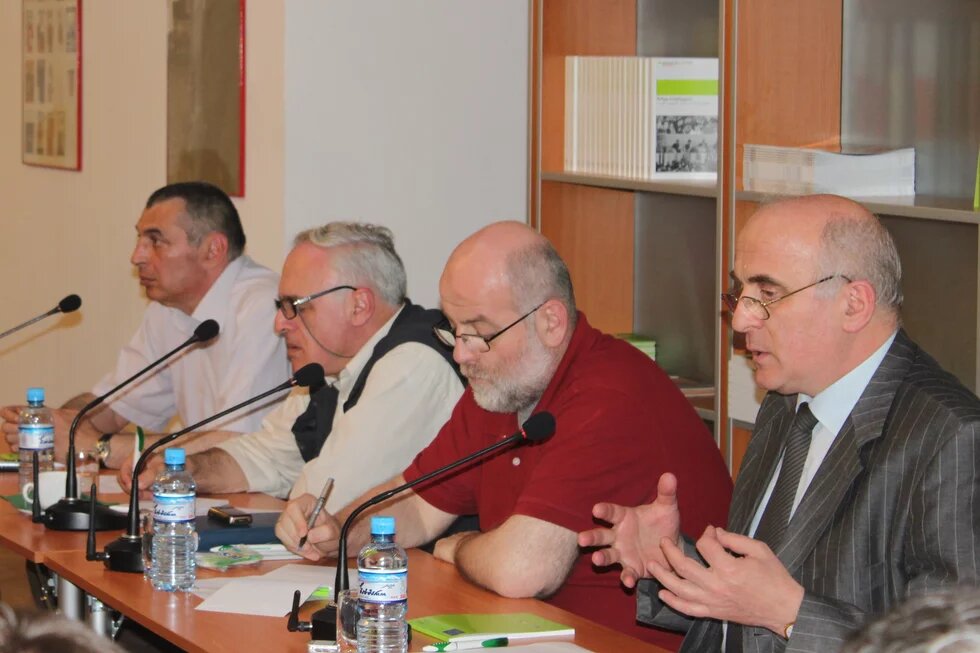
On 2 June 2010, the HBS invited experts, representatives of non-governmental organizations, political parties and interested individuals for a debate on the theme of “The Georgian-Russian Relations: Perspectives for Restoring the Dialogue”.
The invited speakers included: Irakli Menagarishvili – The Director of the Center for Strategic Researches; David Zurabishvili – The Member of the Republican Party and Ramaz Sakvarelidze – The Analyst. The debate was moderated by the journalist Zviad Koridze.
How the Georgian-Russian relations were being developed during last years? What happened in August 2008? What was the reason for worsening the relations between two countries? What is happening today and what is the future prospective of the relations? Why is the restoration of a dialogue important and what hinders its resumption? - These were the questions asked and issues discussed by the guests and participants of the debate.
Experts (Mr. Menagharishvili) highlighted the need for restoring the dialogue and the inclusion of an international community in the process. According to Mr. Menagharishvili, Georgia cannot afford to have long-lasting unbalanced relations with its neighbors, as such status quo might entail serious risks for countries like Georgia. These risks have a potential of translating into threats and might bring serious negative results for the country. A necessity for developing a well-thought strategy of cooperation and finding a positive agenda of relations has also been underlined by the expert.
While delivering his speech, David Zurabishvili focused his attention on the geo-political aspect of the problem. According to Mr. Zurabishvili, without understanding Russia’s interests, it is impossible to implement realistic and well-thought politics towards Russia. It is important to study Russia and its political elite, the Russian language. It is not in the interest of Russia to have a strong Georgian state, but on the other hand it is vital to know Russia in order to be able to neutralize its geo-political influence. Georgia does not have much choice in the existing circumstances as Russia is not expressing willingness for a dialogue. Moreover, the Kremlin is ignoring attempts by Tbilisi to resume the dialogue. The only strategy which is left is to ‘behave well’ and to develop democratic institutions in the country. We have to demonstrate both to Russia and the West that it is in our interests to resume the dialogue. We have to try to make steps towards the dialogue.
The debate highlighted high interest existing in the Georgian society towards discussing the issues related to the Georgian-Russian relations. The debate was attended by more than 70 participants: students, civil society and media representatives, political activists and other interested citizens.
Bringing together different stakeholders to openly discuss the future development of the Georgian-Russian relations and its challenges is a first step towards a difficult process of normalizing the relations between two countries.